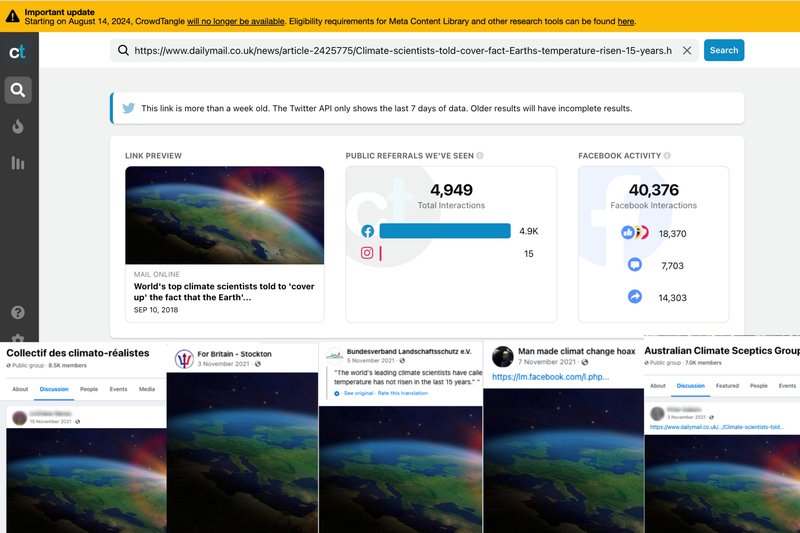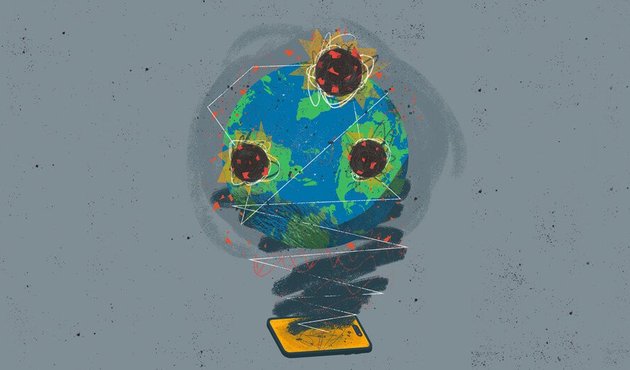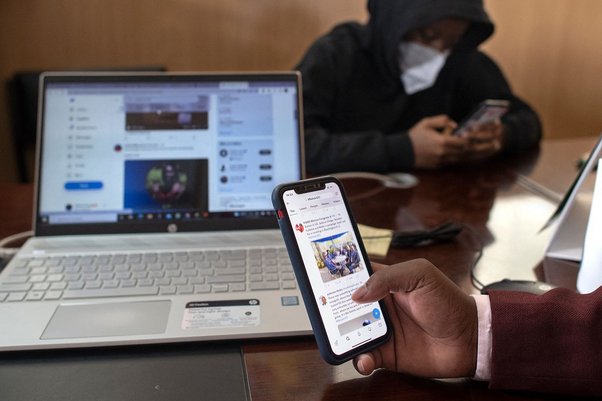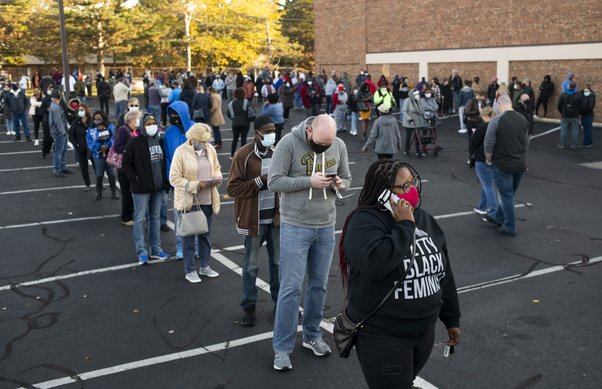The closure of Meta’s transparency tool CrowdTangle is the latest move by social media companies to restrict access to data for researchers, journalists and policymakers.
CrowdTangle is a free software product that has been used by researchers to monitor public pages and groups, and viral posts online on Facebook and Instagram for many years. It has been a leading tool to track election, climate and health misinformation, hate speech and inauthentic behaviour across Meta’s social media platforms.
A recent report from the Coalition for Independent Technology Research found that 88% of researchers surveyed were concerned that the CrowdTangle closure would hinder their work, including revising or ending projects.
3 reasons why the closure of CrowdTangle matters:
- A threat to election security – Access to factual and timely information on social media is key to ensuring a fair and democratic process. In this "ultimate election year" which includes the US elections, democracy is under threat.
- Monitoring misinformation and disinformation – CrowdTangle has helped efforts to map and understand the scale and impact of misinformation and disinformation. Without adequate tools, researchers and journalists are unable to respond quickly to misleading information going viral online.
- Relevant and free data – Universal access to data means that a wide audience can participate in safeguarding societies from digital threats.
Over a decade of access stopped
When working with partners in the Climate Action Against Disinformation coalition, I used CrowdTangle to track the spread of climate misinformation and disinformation before and during the annual Conference of the Parties (COP).
One example used CrowdTangle to track all mentions of a web page on Facebook and Instagram posts. Researchers used this to demonstrate how a Daily Mail article from 2013, whose claims had been thoroughly debunked, was reposted on social media during COP26.
And it is an indispensable tool for responding to emerging threats, enabling researchers to track how a misleading Channel3Now article went viral during the riots in Southport in the UK.

Screenshots of CrowdTangle’s ‘Link Checker’ tool detailing interactions for a 2013 Daily Mail article on public Facebook and Instagram pages and groups. Additional screengrabs show shares of the article on public pages and groups
A wider pattern of restricted access
Rather than increasing transparency, some social media companies are moving towards more restricted, and sometimes commercial alternatives.
Last year, X (formerly Twitter) was criticised for removing free access to its research data, leaving many researchers the choice between paying high fees for access or closing their projects.
This was echoed by the EU commission, who stated that X has failed to “provide access to its public data to researchers in line with the conditions set out in the DSA [Digital Services Act].”
Meta maintains that it is providing a better alternative to CrowdTangle with the newly rolled out “Meta Content Library”. Yet according to a recent investigation by Proof News and others, it is less transparent and accessible than its predecessor.
The EU Commission has also criticised Meta for its plans to shut down CrowdTangle. In opening formal proceedings against Meta, they expressed concerns about the closure of the tool. They said that “in times of elections, access to such tools should instead be expanded" rather than restricted.
We will not be deterred
Removing a vital tool like CrowdTangle, when the emerging threat of AI could supercharge election and climate disinformation, poses a serious threat to efforts to mitigate digital threats.
The DSA requires large online platforms such as Meta to provide access to data to vetted researchers, showing that regulators can step in to demand meaningful transparency from the platforms.
Co-founder of CrowdTangle Brandon Silverman is optimistic, sharing his hope that “that the real long-term legacy of CrowdTangle will end up being to help inspire a permanent set of regulations that make real-time access to public data a legal requirement and an ongoing part of how we manage the internet responsibly and collaboratively.”
But serious challenges remain, especially for those working outside the remit of the EU. Researchers working in the Global South have warned that they will find it harder to study online discourse and monitor the spread of misinformation and disinformation.
At Global Witness, we have been forced to develop new tools and methodologies to meet the current challenges of data access. More than ever, at this fragile time for reliable information relating to elections and climate change, we remain committed to investigating and exposing digital threats and advocating for change.



